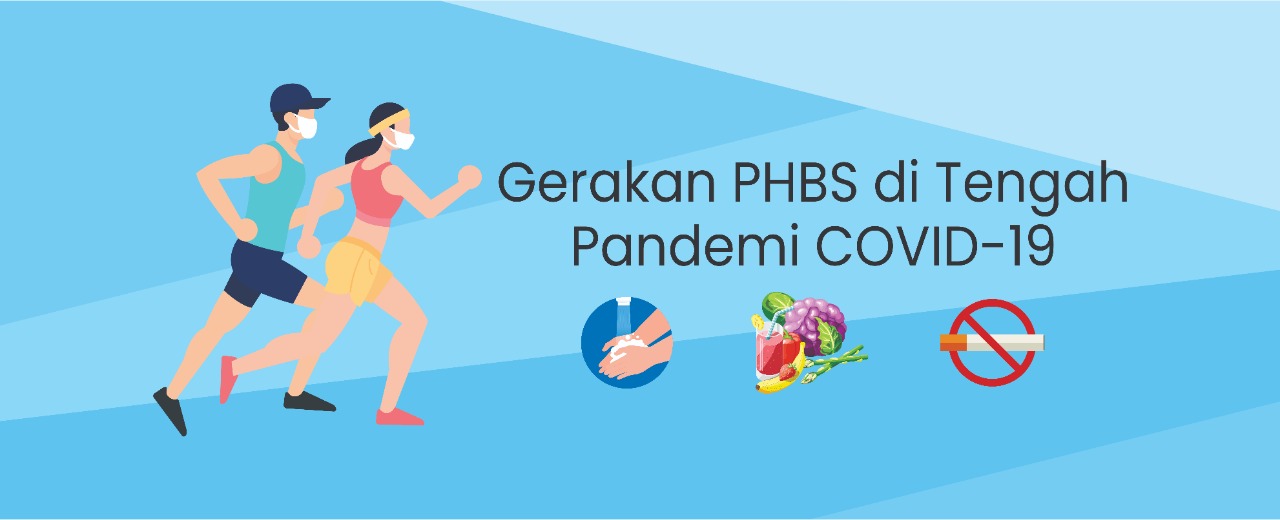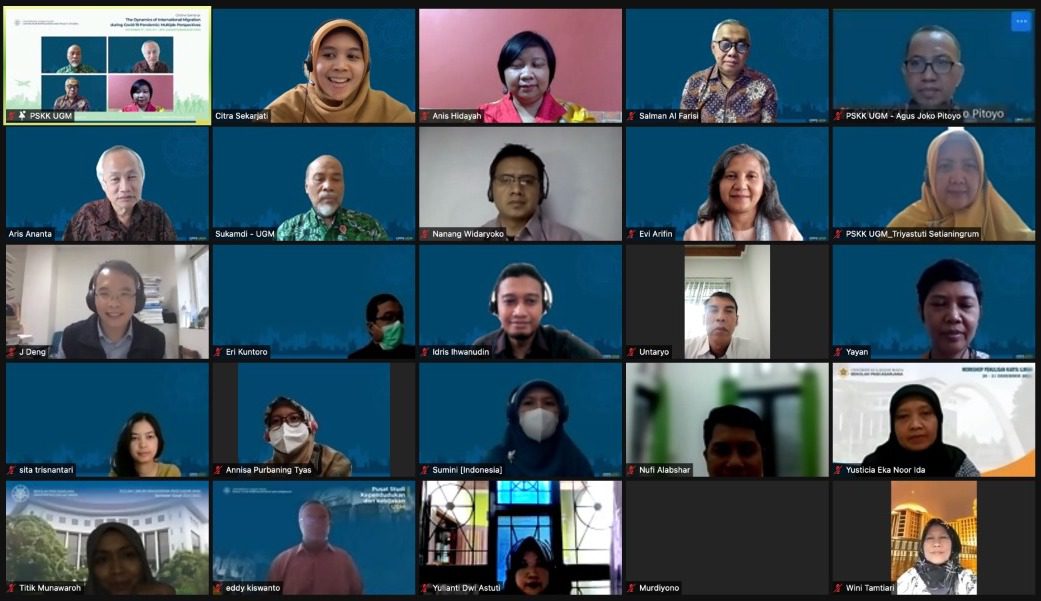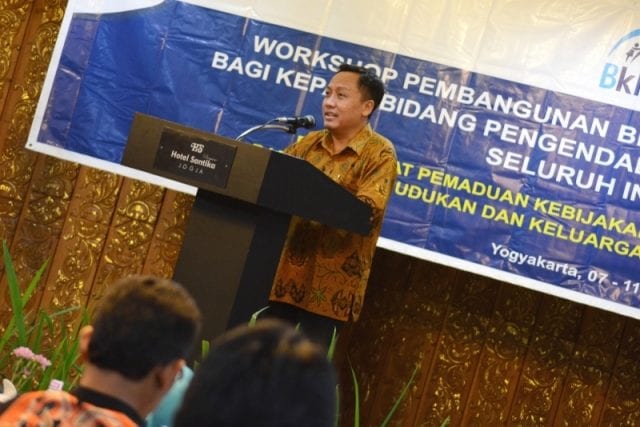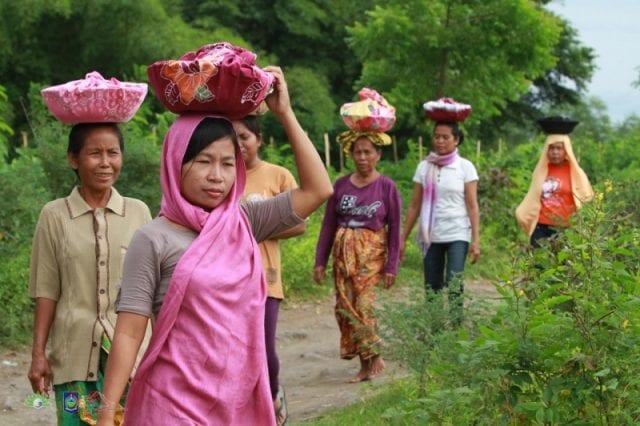
Yogyakarta, CPPS UGM – The Clean and Healthy Behavior (Bahasa Indonesia: Perilaku Hidup Bersih dan Sehat/PHBS) movement is currently being promoted as the way to prevent society from COVID-19. The world has struggled t overcame the COVID-19 for more than half a year and WHO has even declared the COVID-19 a global pandemic since March 11, 2020. The term pandemic refers to a disease that spreads to many people in several countries at the same time. The number of the spread of COVID-19 has significantly increased and globally. As long as the vaccine has not been found, the efforts to reduce the spread and prevention of COVID-19 are to implement the PHBS.
PHBS: One of the Strategies to Fight COVID-19
PHBS is one of the social engineering strategies initiated by the Ministry of Health of the Republic of Indonesia which aims to make the members of the community as much as possible as the agents of change to be able to improve the quality of daily behavior to have a clean and healthy lifestyle. The policy regarding PHBS is regulated in the Regulation of Ministry of Health of the Republic of Indonesia Number 2269/Menkes/Per/XI/2011 concerning Guidelines for the Development of Clean and Healthy Behavior. PHBS is a set of behaviors practiced based on self-awareness and continuously or routinely done, so it becomes character learning to achieve the highest health status. The goal of PHBS was initially to prevent the spread of infectious diseases, such as diarrhea and stunting. However, it is currently being encouraged again to prevent the spread of COVID-19.
The PHBS structure needs to be applied in several elements which are part of the activity places in everyday life, such as homes, schools, workplaces, health facilities, and public places. If the PHBS is applied in everyday life, it is expected that this will increase human’s body endurance as one of the keys to prevent the transmission of COVID-19. One of the important indicators in PHBS is washing hands with soap (hereinafter referred to as Cuci Tangan Pakai Sabun/CTPS) which has been proven to be very important in preventing infectious diseases, such as transmission of COVID-19. This is revealed by White, et al. (2020) in the International Journal of Hygiene and Environmental Health 227 (2020) 113512.
Regarding the prevention of COVID-19 in March 2020, the Ministry of Health has issued Guidelines for the Prevention and Control of COVID-19 through the Decree of the Minister of Health Number HK.01.07/MENKES/328/2020 concerning Guidelines for the Prevention and Control of COVID-19; one of the ways is the CTPS movement in addition to other efforts, such as the use of masks and physical distancing. Proper handwashing should use soap and running water for optimal prevention.
However, the effectiveness of promoting a clean and healthy life to change the community’s behavior, especially washing hands with soap as a habit, remains a challenge. A study conducted by CPPS UGM in 2013 in collaboration with Plan International in Central Java, West Nusa Tenggara, and East Nusa Tenggara showed that washing hands using soap has not become a culture in society. In general, they do not practice CTPS, e.g. before and after eating. The handwashing movement has been introduced since early education through the PHBS program in schools, but in fact, many wash their hands improperly and incorrectly, even many do not wash their hands with soap (Kompas, July 20, 2020).
The Pandemic “Forces” the Change in Community’s Behavior
Changing people’s behavior to live clean and healthy is not an easy matter. A study conducted by Sinaga et al. (2005) in the JMPK Journal Vol. 08:02 published in June 2005 revealed that it takes the role of influential figures in society to get people used to practice PHBS. CTPS is a simple clean and healthy lifestyle, the most cost-effective health intervention since it does not require sophisticated equipment and can be done anywhere and anytime. By implementing CTPS, we can prevent the transmission of gastrointestinal and respiratory diseases. However, getting people used to wash their hands is quite difficult. Lack of adequate facilities and soap in poor areas is one reason this habit is difficult to implement. In developing countries, there are only 27 percent of the population has access to these facilities. Even the World Health Organization (WHO) and UNICEF estimate that about three billion people in the world do not have hand wash facilities at home (BBC News, April 27, 2020).
People’s behavior changes are indispensable for public health interventions. However, in their article published in the BMC Public Health Journal (2020) 20: 154, Czerniewska and White (2020) explained that public health interventions have once experienced a status quo because it was quite difficult to educate people to understand the health risks and benefits of behavior changes. The momentum of COVID-19 provides a good opportunity to promote clean living habits in national programs related to PHBS. The COVID-19 pandemic forces society to change rapidly. This pandemic is a strong motivating factor for society to improve their hygiene.
Washing hands with soap habit have currently become a massive new culture for the community. Almost all public facilities provide CTPS facilities, even some public facilities require visitors to wash their hands before entering the facility. In this pandemic situation, CTPS has finally become a daily routine and even an obligation. The threat of the widespread and easy attaching viruses to various types of objects makes CTPS a solution to kill them.
The CTPS habit needs to be applied in the family from an early age. Family is the key to changing behavior. The growing awareness of CTPS as a new culture also needs to be maintained. Behavior changes in children to get used to practicing CTPS can be done in a family environment. Children’s behavior can be formed from an early age so that they can do this habit until they are adults. The experience during this pandemic will make them get used to doing CTPS in the future. After the pandemic ends, it is hoped that CTPS will continue to be practiced if this habit has become the culture of the community.[]
*Sri Purwatiningsih, S.Si.,M.Kes | Researcher at Center for Population and Policy Studies UGM | illustration: Affen Irhandi/PSKK UGM




